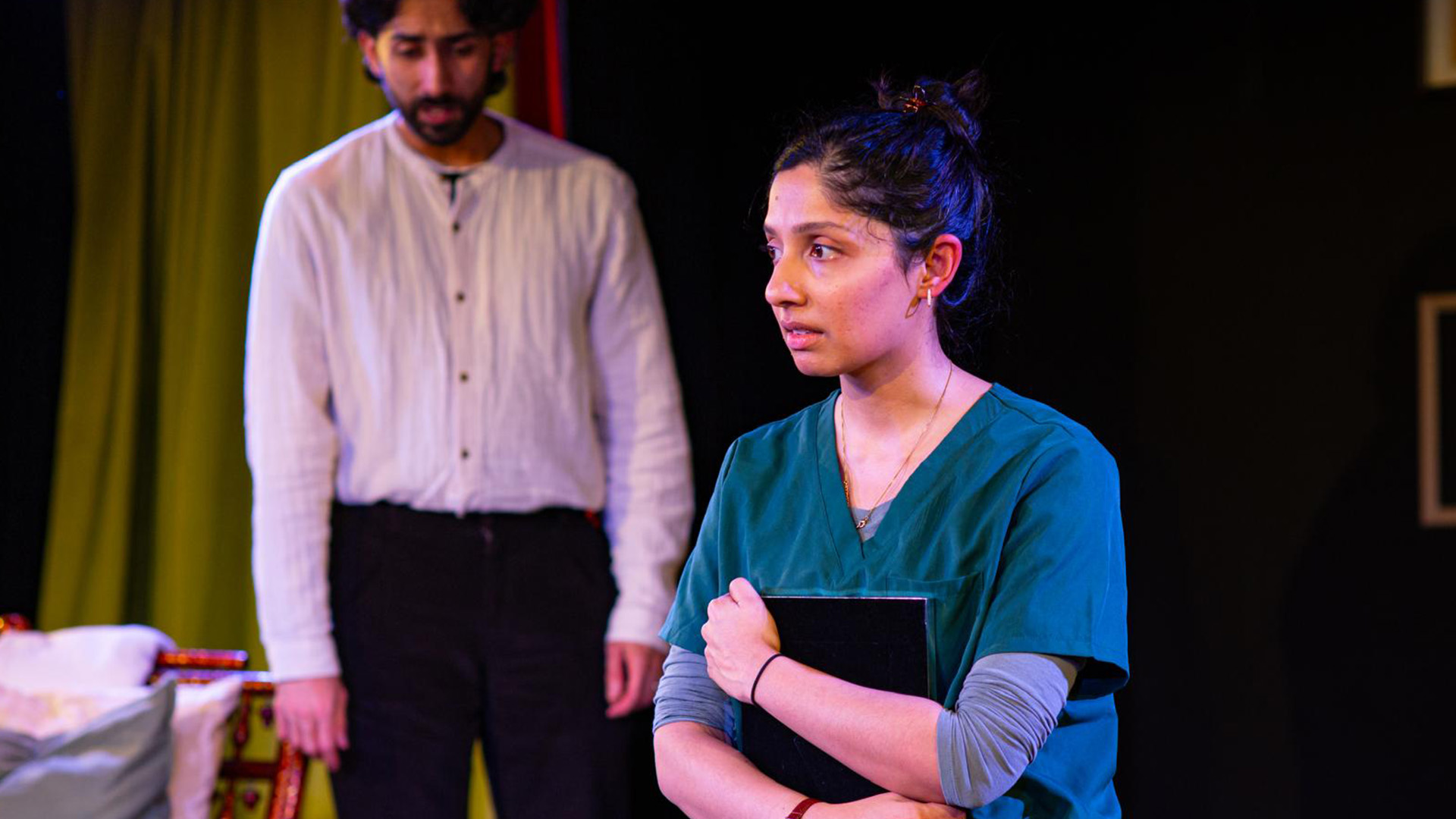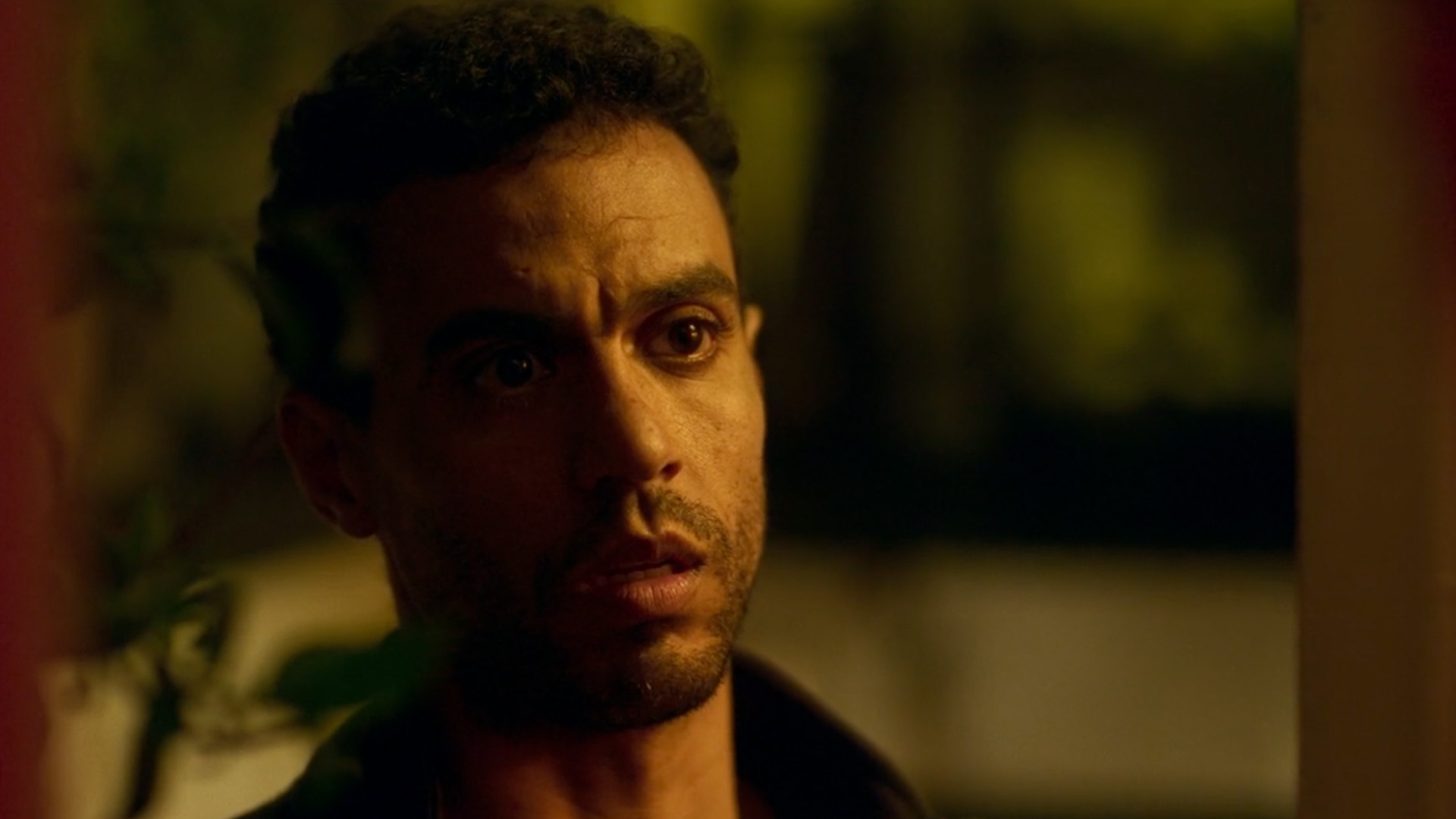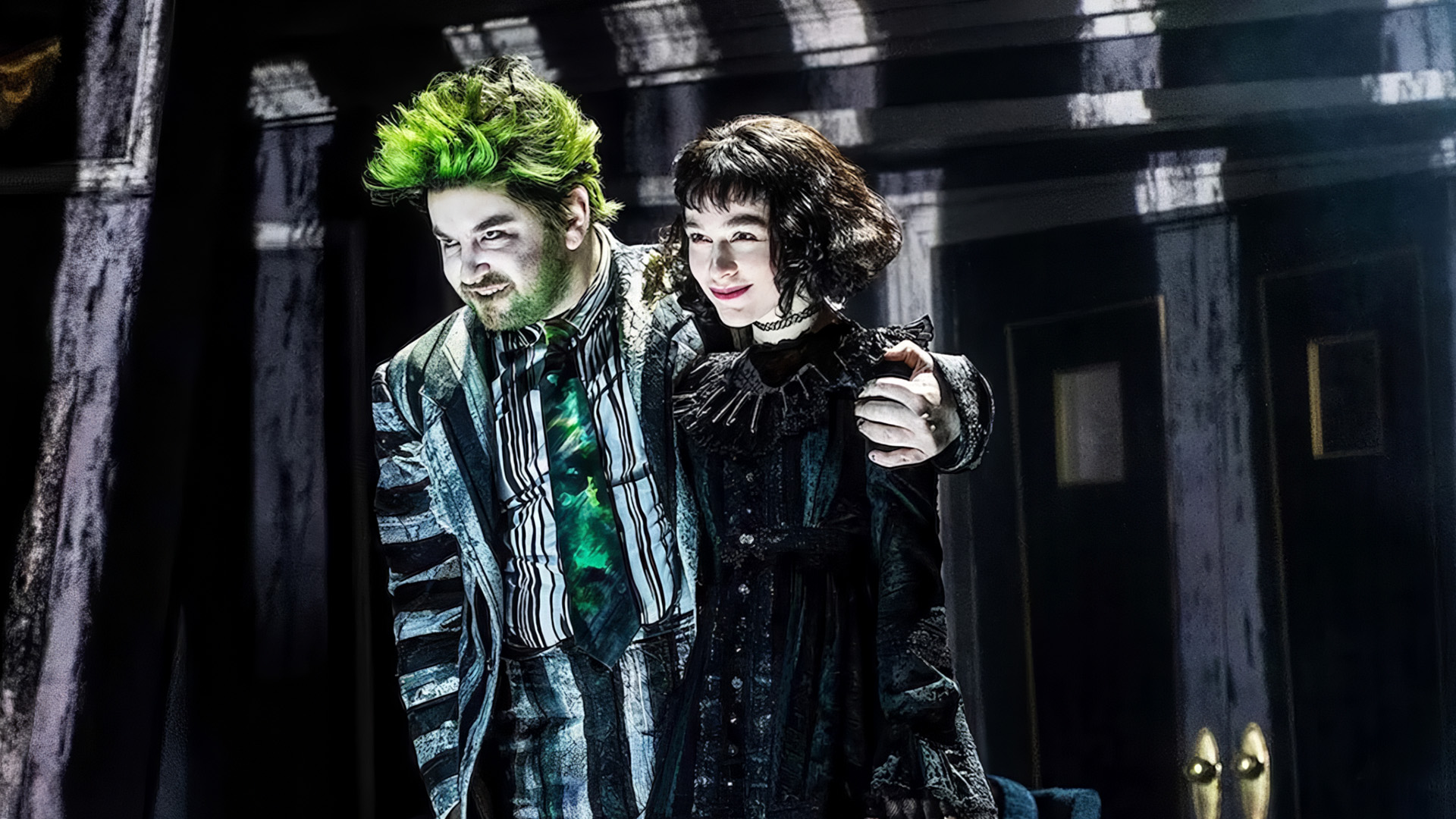Interview with Alfie Webster on lenny at Omnibus Theatre
An interview with Alfie Webster on his debut play lenny, a witty and moving solo show exploring queerness, belonging, and friendship at Omnibus Theatre.
Interview with Alfie Webster on lenny at Omnibus Theatre

Before lenny ever reached the stage, Alfie Webster was already building a layered artistic identity as an actor, poet, and playwright. Born and raised in South East London, he trained at RADA before completing an MA in Writing for Stage and Broadcast Media at the Royal Central School of Speech and Drama. His debut play, lenny, was developed at the Royal Court’s Introduction to Playwriting group and had a sold-out premiere at Theatre503 in 2023. Now it transfers to Omnibus Theatre, directed by Fringe First Award winner Sarah Stacey and produced by Grey Castle Productions.
Webster’s theatre credits as an actor include Stop Kiss (Above the Stag), Peter Pan (Park Theatre) and Much Ado About Nothing (UK tour). His writing has been recognised by BBC Writersroom and long listed by the Royal Shakespeare Company. With lenny, Webster has created something deeply personal: a solo show that is funny, raw, and painfully honest, exploring masculinity, belonging, and what it means to live on the sidelines.
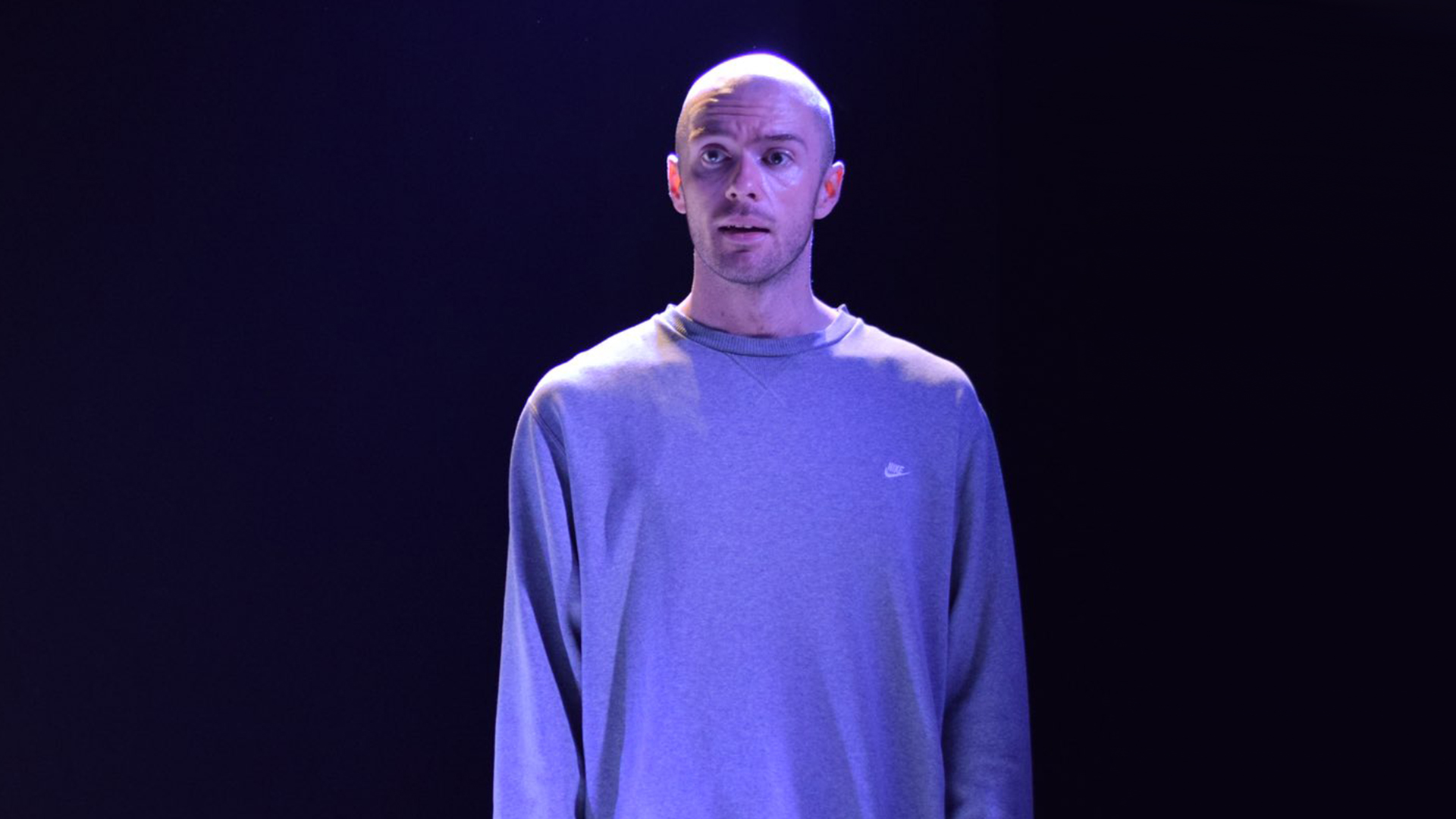
Lex: lenny began at Theatre503 and now moves to Omnibus Theatre. How does it feel to see your debut play grow and find a bigger audience?
Alfie Webster: It feels amazing. I feel incredibly lucky to have been on this journey, from the messy conception of the play to refining it at the Royal Court, to 503, and now to Omnibus. The most special part is the audiences. Their reactions have been heartwarming and heartbreaking. We wanted people to feel seen through Lenny and to leave changed, so to keep doing that night after night is a privilege.
Lex: You trained as an actor at RADA and later studied writing at Central. How do those two worlds come together in this solo show?
Alfie Webster: Both experiences shaped the play. At Central I honed my craft as a playwright, which gave me the dramaturgical language behind lenny. At RADA, I was a working class queer actor navigating a very traditional space. That gave me so much to reflect on, what supports authenticity and what hinders it. Both the technical side and the personal side of that training fed directly into Lenny’s journey.
Lex: The play is rooted in questions of masculinity and belonging. How much of that comes from your own experience as a queer man?
Alfie Webster: Belonging and masculinity are huge themes for me. My queerness has taught me that masculinity and femininity live in all of us. Too often men are told to block softness or emotions. lenny comes from my journey of learning that masculinity is not something to prove. It is already inside me, just like it is for everyone.
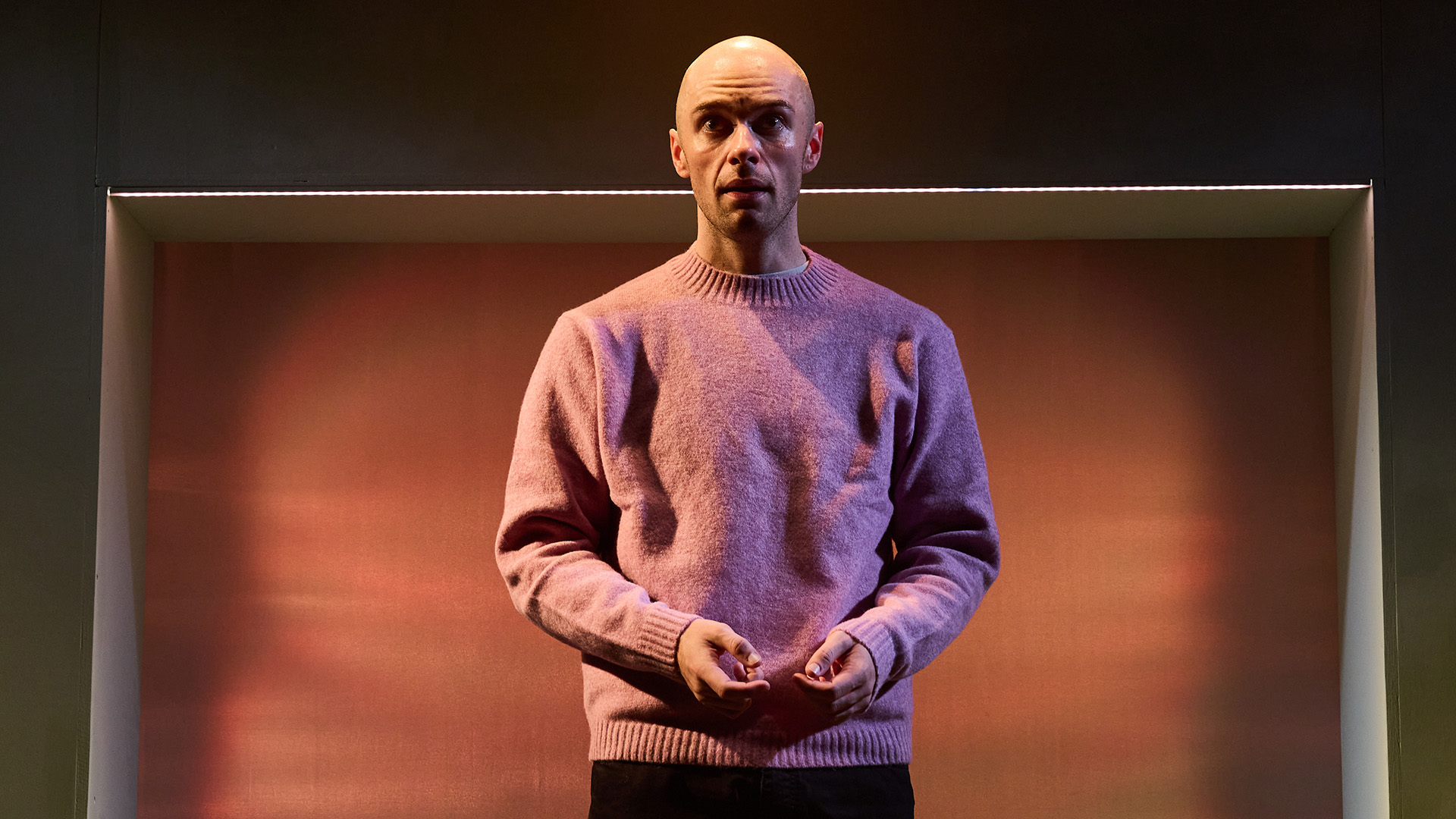
Lex: Aimee Lou Wood called lenny a story about a generation cursed with being “too much or too little.” Does that resonate with you personally?
Alfie Webster: Yes, completely. Millennials especially feel the pressure to know who we are and to have all the answers as we approach 30. Lenny believes he does not make sense, and I think that speaks to a lot of us. Life does not need to make sense to be beautiful. Our contradictions are something to celebrate, not something to erase.
Instead of always being presented in Q&A, some parts of Webster’s reflections feel better told in context. Turning 30, for example, became a major personal shift. In the weeks leading up to it, he describes feeling dread, the sense that he had to fix everything left undone in his twenties. Yet on the day itself, calm arrived. “Life does not start later, it is happening now,” he realised. That decision, to stop waiting and step into his own story, shaped how he wrote Lenny’s journey.
Lex: You have said Lenny is not even the main character in his own life. Where did that feeling of being “on the sidelines” come from?
Alfie Webster: From my school years. Kiss chase, PE games, always being left out without knowing why. I think a lot of queer people recognise that default position of being outside looking in. Lenny spends his life in the cinema, literally watching stories play out, until suddenly he is forced to tell his own. That tension is at the core of the play.
Lex: Friendship runs through the play, even though Carly never appears on stage. Why did you want to tell the story through friendship rather than romance?
Alfie Webster: Friendship is everything. In queer life, chosen family often anchors us. lenny is a homage to that, especially to female friendship. The women in my life shaped me into who I am. Romantic love should never overshadow friendship love. They are equally important.
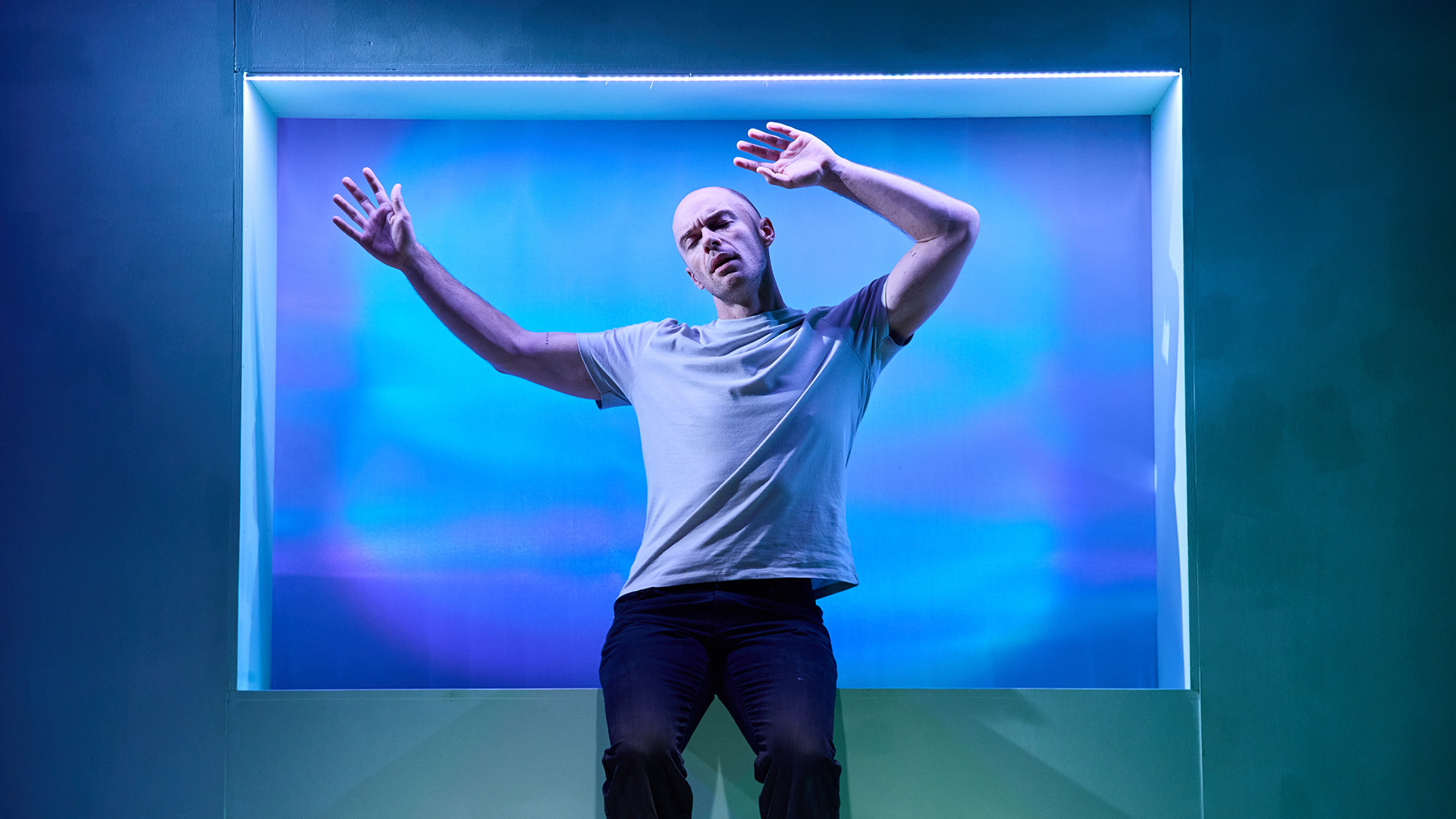
Lex: Performing a solo show can feel like a confession. How do you prepare yourself each night to share such vulnerability?
Alfie Webster: My director Sarah Stacey always says, “Dare to be radically honest.” That is the mantra I carry. Each night the audience becomes part of the story, and that changes everything. It is exposing, but it feels like the only way to tell Lenny’s truth.
When asked which moments have been the hardest to perform, Webster points to a scene where Lenny confronts the figure that haunts him in the mirror. “It is personal and very raw, and rehearsing it was incredibly tough,” he admits. Yet the more he dared to go there, the stronger the impact. Audiences have had some of their most powerful emotional responses to that scene.
Lex: You perform multiple characters in the piece. How did you find their voices and physicality?
Alfie Webster: Jack and Carly are both embodied and confident in ways that Lenny is not. So I found their weight, where their voices sit, their accents. Jack is from Edinburgh, Carly is from South London. It is also about how Lenny perceives them, not necessarily how they see themselves. That contrast is fun to play with.
Lex: The play shifts from humour to something darker. Was that balance always part of your vision?
Alfie Webster: Yes. Queer life holds both. We grow up facing shame and darkness, but humour is intrinsic to our survival. I did not want to shy away from identity struggles or worthlessness, but Lenny is also witty and accidentally charming. That balance was always part of my vision.
Webster’s connection to South East London is also a key part of this production. He speaks with pride about bringing lenny to Omnibus, calling it a homecoming. “The energy, the people, the untold stories I grew up around are infused into this play,” he says. “To bring it to Omnibus feels like bringing it home. It is an homage to where I came from.”
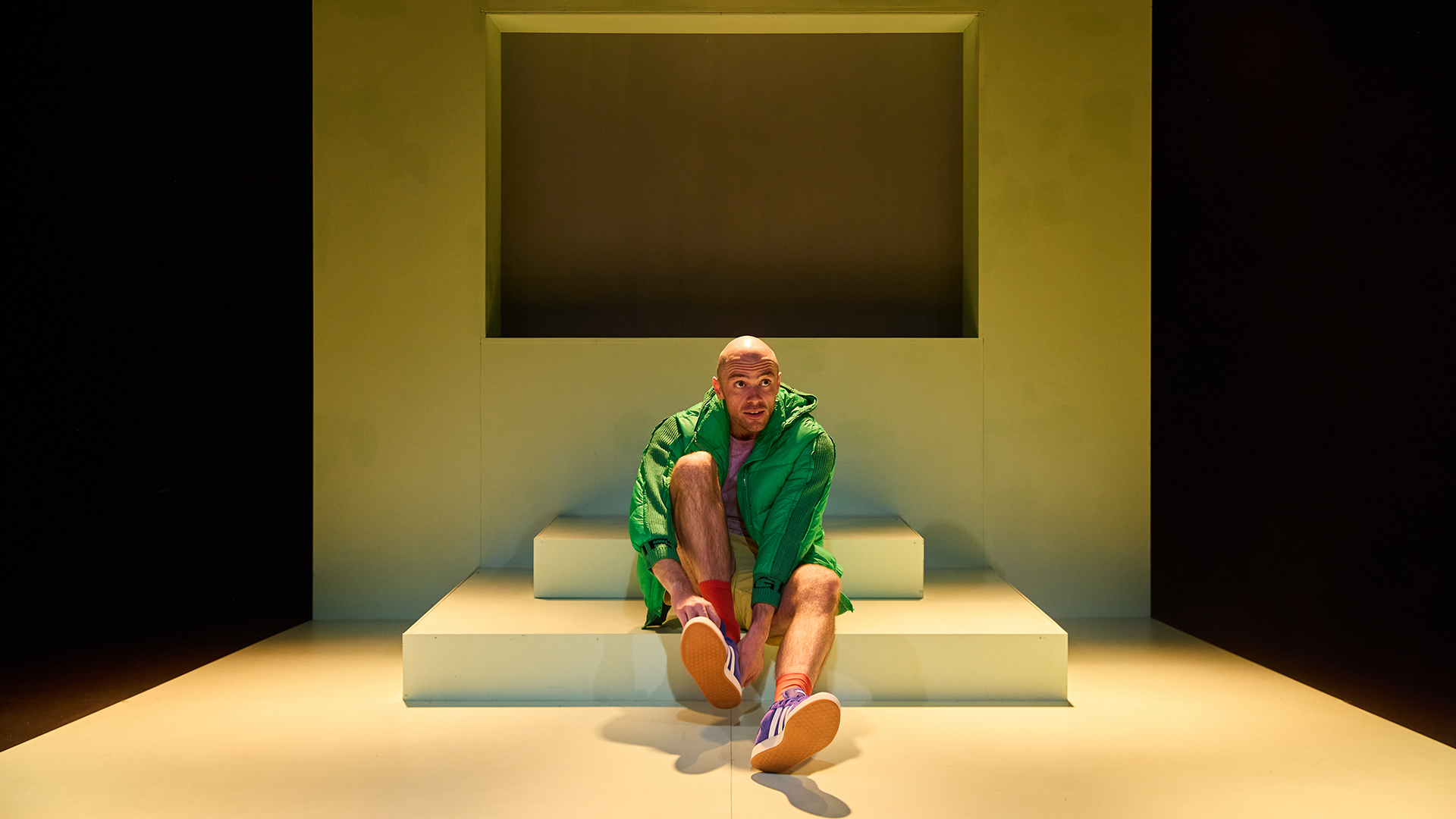
Lex: You have been long listed by the RSC and recognised by BBC Writersroom. Has that changed how you see yourself as a writer?
Alfie Webster: It is really encouraging. Writing can be lonely and full of critique, so recognition from places like the BBC or the RSC feels affirming. It tells me I do not have to change my voice to be heard. Staying true to my originality is what gets noticed.
Lex: You also write poetry. Do you feel poetry feeds into the rhythm and voice of lenny?
Alfie Webster: Absolutely. Poetry is alive in lenny. A friend said the poetic moments appear when Lenny reaches emotional peaks, and that is exactly how I intended it. Sometimes poetry is the only way to express those feelings. Theatre and poetry can live together beautifully.
Lex: After living so closely with this story, what do you hope audiences carry with them when they leave the theatre?
Alfie Webster: I hope they feel deeply seen. I hope they are inspired to stop living on the sidelines and step into the middle of their own lives with honesty and bravery. Lenny just wants to love and be loved, and by the end he is ready to give as much as he receives. I hope audiences feel that same permission when they walk out.
Tickets available at: www.omnibus-clapham.org
16 September – 4 October 2025
lenny
Written and performed by Alfie Webster
Directed by Sarah Stacey
Produced by Grey Castle Productions
Omnibus Theatre, London
16 September – 4 October 2025
Press Night: 19 September

Get weekly updates
.png)
Join Our Newsletter
Get a weekly selection of curated articles from our editorial team.




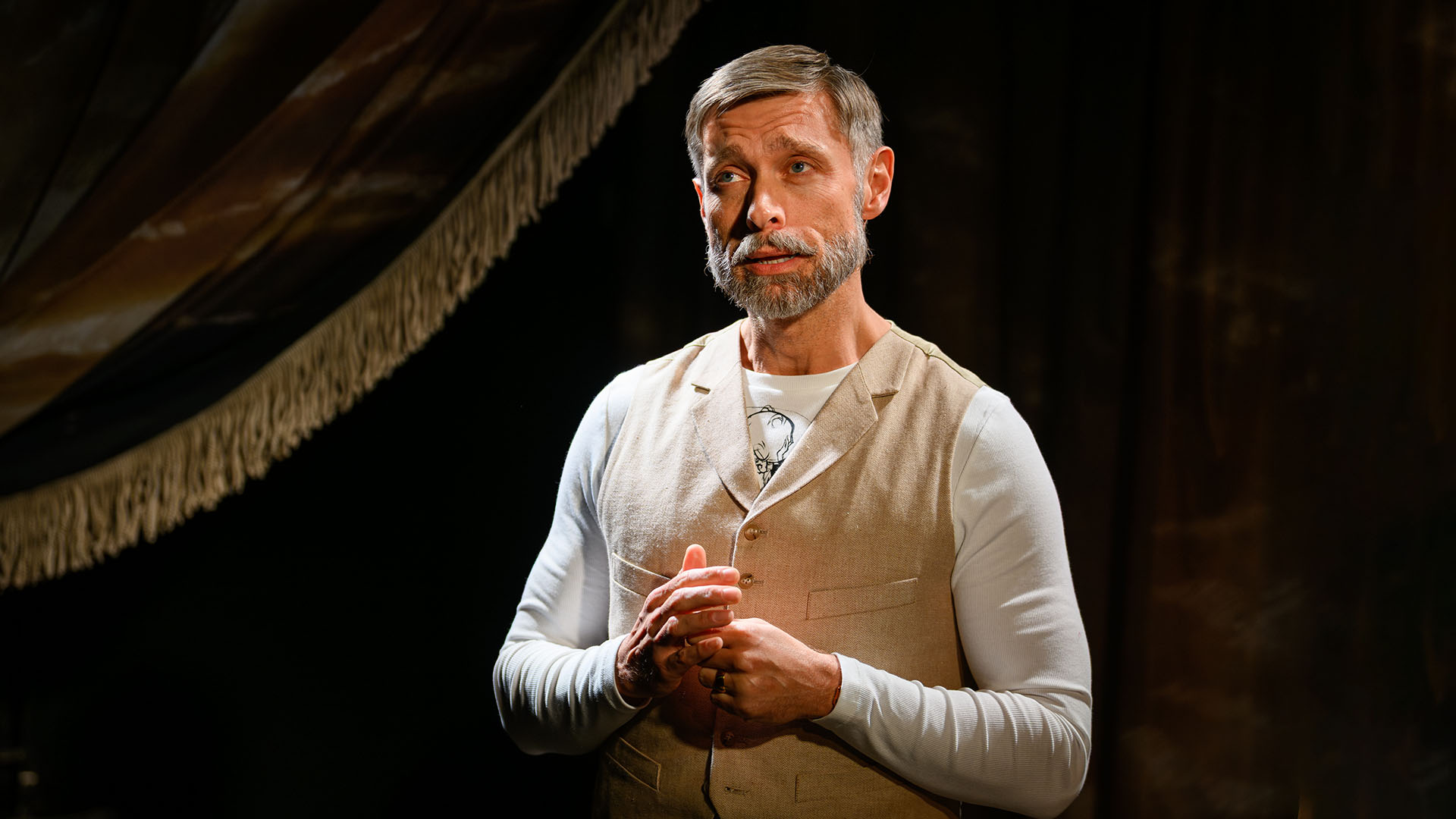
.svg)


